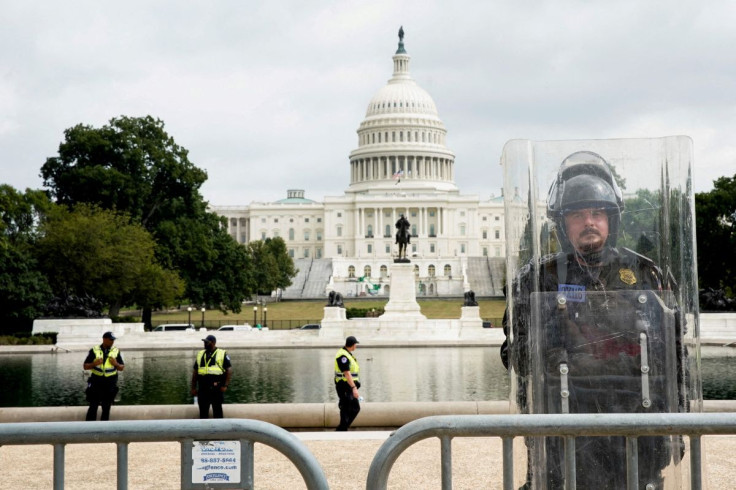U.S. Prosecutors To Open First Criminal Trial Against Alleged Capitol Rioter

U.S. federal prosecutors on Wednesday will make opening statements in the first of what could be hundreds of criminal trials of people accused of joining the Jan. 6, 2021 assault on the Capitol by Donald Trump's supporters.
Guy Reffitt, of Texas, is the first of some 750 people charged with joining the attack, the largest on Congress since the War of 1812, to face trial in Washington. Charges include carrying a semi-automatic handgun while on Capitol grounds.
Some 200 defendants have already pleaded guilty to joining in the attack, which sent lawmakers running for their lives, and Reffitt's trial is an important test case as the U.S. Justice Department attempts to secure convictions from the hundreds of defendants who have not taken plea deals.
They face charges ranging from unlawful picketing to seditious conspiracy, with which 11 people affiliated with the right-wing Oath Keepers were charged in January.
A guilty verdict for Reffitt could motivate defendants to accept plea deals offered by prosecutors. But a verdict in Reffitt's favor could motivate the hundreds of defendants who have not taken plea deals to roll the dice on a trial.
Reffitt also faces charges of obstruction for allegedly threatening his teenage children with harm if they turned him in to authorities.
The accused's estranged son Jackson, now 19, turned him into the FBI. The son is expected to testify against his father at trial, prosecutors have said.
If convicted of the most serious charges against him, Reffitt faces a maximum sentence of 20 years in prison, though defendants rarely receive maximum penalties.
Thousands of people stormed the Capitol on Jan. 6, 2021, after a fiery speech in which Trump falsely claimed his election defeat was the result of widespread fraud, an assertion rejected by multiple courts, state election officials and members of his own administration.
Four people died on the day of the violence, one shot dead by police and the other three of natural causes. A Capitol Police officer who had been attacked by protesters died the following day.
Four police officers who took part in the defense of the Capitol later took their own lives. More than a hundred police officers were injured.
© Copyright Thomson Reuters {{Year}}. All rights reserved.





















